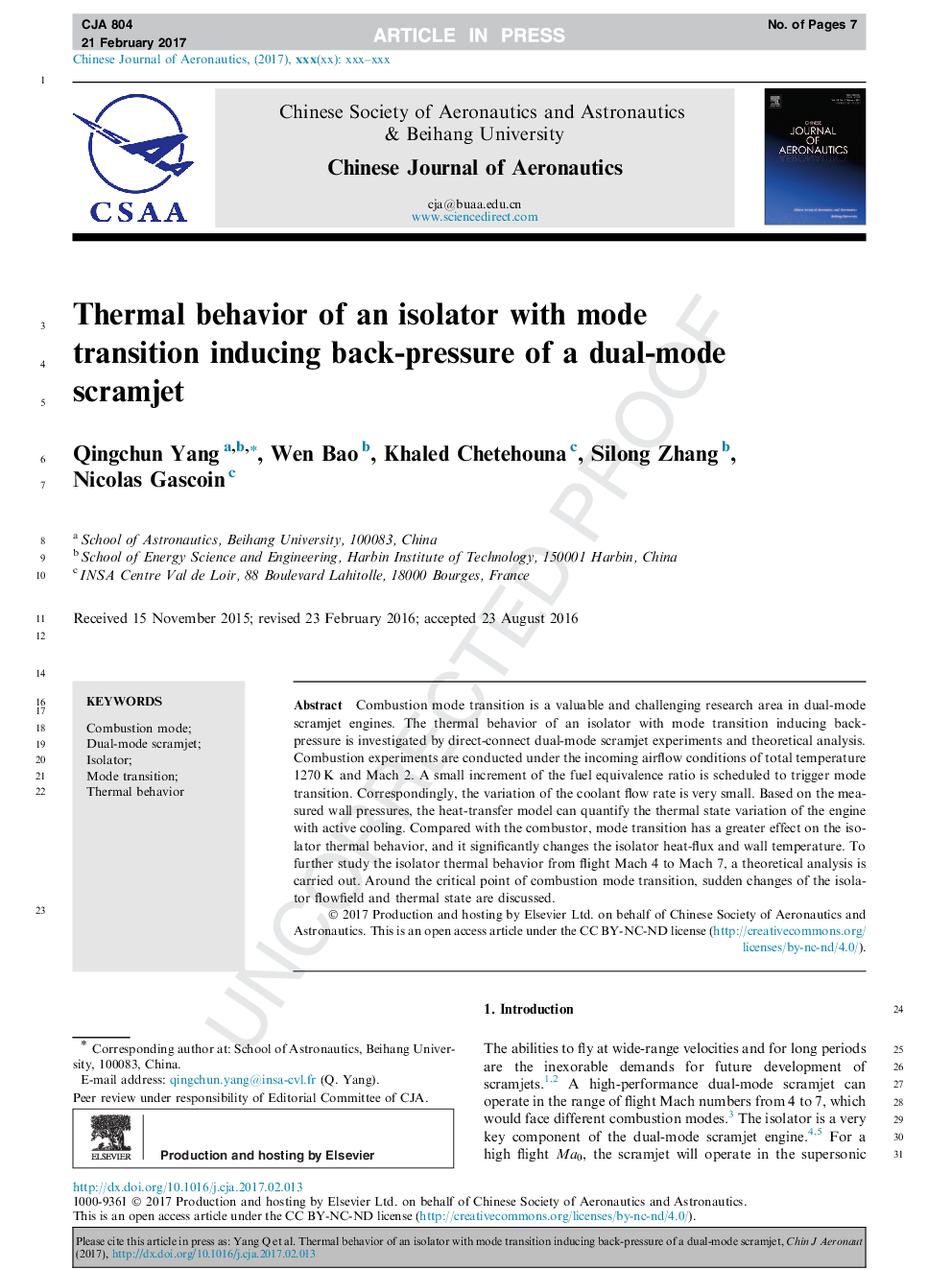| Article ID | Journal | Published Year | Pages | File Type |
|---|---|---|---|---|
| 7154067 | Chinese Journal of Aeronautics | 2017 | 7 Pages |
Abstract
Combustion mode transition is a valuable and challenging research area in dual-mode scramjet engines. The thermal behavior of an isolator with mode transition inducing back-pressure is investigated by direct-connect dual-mode scramjet experiments and theoretical analysis. Combustion experiments are conducted under the incoming airflow conditions of total temperature 1270Â K and Mach 2. A small increment of the fuel equivalence ratio is scheduled to trigger mode transition. Correspondingly, the variation of the coolant flow rate is very small. Based on the measured wall pressures, the heat-transfer model can quantify the thermal state variation of the engine with active cooling. Compared with the combustor, mode transition has a greater effect on the isolator thermal behavior, and it significantly changes the isolator heat-flux and wall temperature. To further study the isolator thermal behavior from flight Mach 4 to Mach 7, a theoretical analysis is carried out. Around the critical point of combustion mode transition, sudden changes of the isolator flowfield and thermal state are discussed.
Related Topics
Physical Sciences and Engineering
Engineering
Aerospace Engineering
Authors
Yang Qingchun, Bao Wen, Chetehouna Khaled, Zhang Silong, Gascoin Nicolas,
